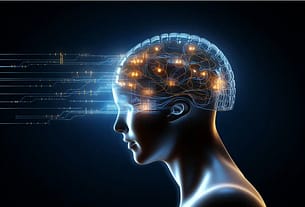- What is vitamin D?
- What does vitamin D do for the body?
- Does vitamin D cause thyroid disease?
- Vitamina D and autoimmunity
- How much vitamin D do I need?
Nearly one-fifth of the world’s population is deficient in vitamin D. 76% of the Indian population suffers from vitamin D deficiency. Vitamin D or the ‘Sunshine’ vitamin is a vital nutrient that helps regulate the amount of calcium and phosphate in the body. optimizing your thyroid function relies heavily on your body receiving the nutrients it needs. Your thyroid gland and overall health can suffer when you are deficient in vital nutrients like zinc, iron, iodine, or vitamin D.
What is vitamin D?
Vitamin D is an essential nutrient that our body requires for optimal functioning. Sometimes called the “sunshine vitamin,” vitamin D can be synthesized in our skin when we are in sunlight. This fat-soluble vitamin occurs naturally in very few foods, but we can take it in supplemental form. Because dietary vitamin D can be hard to come by naturally, many foods are fortified with this essential nutrient.
Dietary sources of natural and fortified vitamin D include:
- Fish (salmon, trout, cod liver oil, sardines, tuna)
- Fortified milk, yogurt, and cheese
- Fortified almond, soy, and oat milk
- Eggs (especially the yolks)
- Raw mushrooms
- Fortified orange juice
- Fortified cereals and grains
While fortified foods can help boost vitamin D levels, sun exposure is our primary source of vitamin D. Unfortunately, people get less and less sun exposure for a variety of reasons, including less time spent outdoors, increased use of sun protectant, and higher levels of pollution. These factors, and many more, have contributed to an increase in vitamin D deficiencies. Indeed, vitamin D deficiency is sometimes viewed as a global epidemic, affecting over one billion people.
What does vitamin D do for the body?
Vitamin D plays several crucial roles in our bodies. It regulates over 200 different genes and is vital for healthy growth and development. Perhaps its most significant roles include promoting calcium and phosphorous absorption from our diet and maintaining a healthy immune system. By increasing calcium and phosphorous absorption from the foods that we eat, vitamin D helps limit the breakdown of our bones and prevents diseases like osteomalacia and osteoporosis. Similarly, healthy levels of vitamin D keep your immune system regulated by preventing inflammation and autoimmune destruction.
When we are deficient in vitamin D, multiple systems in our bodies can be affected. People with vitamin D deficiency may feel fatigued, depressed, or suffer from muscle, joint, or bone pain. Often, vitamin D deficiency links to other health conditions and diseases, including:
- Cancer
- Neuropathy
- Infertility
- Kidney disease
- Cardiovascular disease
- Diabetes
- Autoimmune disorders including rheumatoid arthritis, lupus, inflammatory bowel disease, multiple sclerosis, and autoimmune thyroid disease
Certain groups of people are at a higher risk for vitamin D deficiency. For example, people with darker skin may have a harder time absorbing vitamin D from sunlight. Older adults lose their ability to efficiently synthesize vitamin D in their skin and convert it through their kidneys. Finally, people with gastrointestinal disorders that impact fat absorption, such as Crohn’s disease, inflammatory bowel disease, and obesity, may have difficulty absorbing vitamin D.
Does vitamin D cause thyroid disease?
There is no quick answer to this question.
Research indicates that vitamin D may play a role in hypothyroidism and Hashimoto’s thyroiditis. Some studies find that people with Hashimoto’s and non-autoimmune hypothyroidism have low serum blood levels of vitamin D and calcium. This finding may not be that surprising as over one billion people are low in vitamin D. However, evidence suggests that taking a vitamin D supplement may improve serum TSH levels. This improvement in TSH may indicate that vitamin D supplements may decrease the severity of thyroid dysfunction. However, some clinical studies have shown that while TSH levels improved in people taking vitamin D supplements, T3 and T4 levels were not affected.
There are a few possible explanations for why people with hypothyroidism have low vitamin D levels. Firstly, the intestinal absorption of vitamin D from foods and supplements may be inadequate. Secondly, people with hypothyroidism may not effectively activate vitamin D. Finally, some side effects of hypothyroidism may cause low vitamin D. For example, people with hypothyroidism may spend less time outside in the sun because they are have fatigue or low energy.
While there appears to be a positive correlation between vitamin D deficiency and hypothyroidism, we do not know if low vitamin D levels cause thyroid dysfunction or if it is a side effect of thyroid disease.





